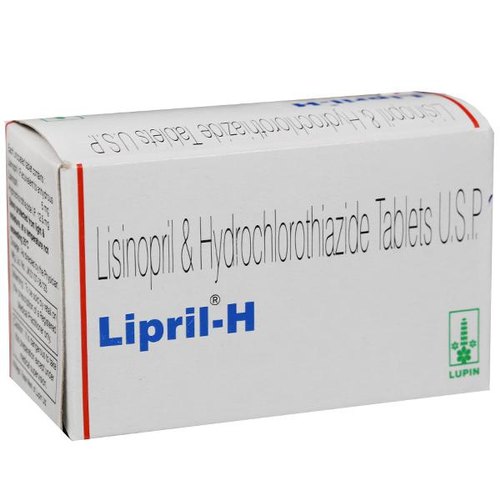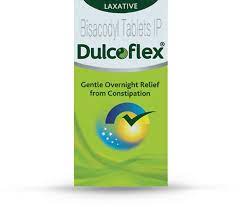Angiotensin H 5mg/12.5mg Tablet LISINOPRIL + HYDROCHLOROTHIAZIDE
Angiotensin H 5mg125mg Tablet should be taken with or without food preferably in the morning to avoid frequent urination at night It is important to continue taking this medication for the duration advised by your doctor even if you feel well Stopping the medicine without medical guidance is not recommended as high blood pressure often does not exhibit symptoms and your condition may worsen if the medication is discontinued In addition to taking the medication it is beneficial to engage in regular physical activity maintain a healthy weight and consume a balanced diet to manage blood pressure It is essential to follow your doctors instructions while taking this medication Common side effects of Angiotensin H 5mg125mg Tablet may include nausea changes in taste diarrhea and indigestion If these effects become bothersome worsen or do not go away consult your doctor Inform your doctor if you experience persistent cough or throat irritation It is recommended to stay hydrated to counteract muscle weakness dry mouth and excessive thirst that may occur while taking this medication Before initiating treatment with Angiotensin H 5mg125mg Tablet inform your doctor about any liver or kidney problems you may have Pregnant or breastfeeding women should consult their doctor for advice before starting this medication Inform your doctor of any other medications you are taking particularly those used to treat high blood pressure or heart conditions Regular monitoring of blood pressure kidney function and electrolyte levels such as potassium is necessary to ensure the effectiveness of this medication


Are the medicines in combination of Hydrochlorothiazide and Lisinopril safe to take together?
Hydrochlorothiazide and Lisinopril are often prescribed together to treat high blood pressure. Hydrochlorothiazide is a diuretic, which helps your body get rid of excess salt and water, while Lisinopril is an ACE inhibitor that helps relax blood vessels. According to the NHS and NLM, this combination is generally considered safe and effective for most people when taken as prescribed by a healthcare professional. However, it is important to monitor for potential side effects such as dizziness, lightheadedness, or changes in kidney function. Always consult with your doctor or pharmacist before starting or stopping any medication.

Are there harms and risks from taking combination of Hydrochlorothiazide and Lisinopril?
Yes, there are potential harms and risks when taking a combination of Hydrochlorothiazide and Lisinopril. Hydrochlorothiazide is a diuretic, which helps the body get rid of excess salt and water, while Lisinopril is an ACE inhibitor, which helps relax blood vessels. Together, they are often used to treat high blood pressure. However, combining these medications can lead to side effects such as dizziness, lightheadedness, or dehydration due to increased urination. More serious risks include kidney problems, high potassium levels, and allergic reactions. It's important to monitor for symptoms like swelling, difficulty breathing, or unusual tiredness, and consult a healthcare provider if they occur. Always follow the prescribed dosage and discuss any concerns with a healthcare professional to ensure safe use of these medications.

Can I take combination of Hydrochlorothiazide and Lisinopril if I am pregnant?
It is generally not recommended to take Hydrochlorothiazide and Lisinopril during pregnancy. Lisinopril, which is an ACE inhibitor, can harm the developing baby, especially if taken during the second and third trimesters. Hydrochlorothiazide, a diuretic, may also pose risks during pregnancy. It is important to consult with a healthcare provider for safer alternatives if you are pregnant or planning to become pregnant.

Can I take combination of Hydrochlorothiazide and Lisinopril while breastfeeding?
When considering the use of Hydrochlorothiazide and Lisinopril while breastfeeding, it's important to consult with a healthcare professional. Hydrochlorothiazide is a diuretic, which means it helps remove excess fluid from the body, and Lisinopril is an ACE inhibitor, which helps relax blood vessels. Both medications can pass into breast milk in small amounts.
Hydrochlorothiazide is generally considered safe during breastfeeding, but it may reduce milk production if taken in high doses. Lisinopril is also considered to be low risk during breastfeeding, but it's crucial to monitor the baby for any signs of side effects, such as low blood pressure or changes in kidney function.
Always discuss with your doctor or a healthcare provider to weigh the benefits and potential risks before taking these medications while breastfeeding.

Can I take combination of Hydrochlorothiazide and Lisinopril with other prescription drugs?
Hydrochlorothiazide and Lisinopril are medications often used together to treat high blood pressure. However, combining them with other prescription drugs can sometimes lead to interactions. It's important to consult with a healthcare provider before adding any new medications.
Hydrochlorothiazide is a diuretic, which means it helps your body get rid of extra salt and water. Lisinopril is an ACE inhibitor, which helps relax blood vessels. Both can interact with other medications, potentially affecting how they work or increasing side effects.
You should be cautious when taking these drugs with other medications that affect blood pressure, such as other diuretics or ACE inhibitors, as this can lead to very low blood pressure. Additionally, combining them with non-steroidal anti-inflammatory drugs (NSAIDs) can reduce their effectiveness.
Always inform your doctor about all the medications you are taking, including over-the-counter drugs and supplements, to ensure safe and effective treatment.

For how long is combination of Hydrochlorothiazide and Lisinopril taken?
The combination of Hydrochlorothiazide and Lisinopril is typically taken as a long-term treatment. This means that it is usually prescribed for ongoing use to manage high blood pressure or heart failure. The exact duration will depend on the individual's health condition and how well they respond to the medication. It's important to follow the healthcare provider's instructions and not to stop taking the medication without consulting them, as stopping suddenly can lead to a return of symptoms or other health issues. Regular check-ups with a healthcare provider are necessary to monitor the effectiveness and adjust the dosage if needed.

How does combination of Hydrochlorothiazide and Lisinopril work?
The combination of Hydrochlorothiazide and Lisinopril is used to treat high blood pressure. Hydrochlorothiazide is a diuretic, often called a 'water pill,' which helps your body get rid of extra salt and water by increasing urine production. This helps to lower blood pressure and reduce swelling. Lisinopril is an ACE inhibitor, which stands for Angiotensin-Converting Enzyme inhibitor. It works by relaxing blood vessels, making it easier for the heart to pump blood around the body. Together, these medications help to lower blood pressure more effectively than either would alone, reducing the risk of heart attacks and strokes.

How does one take combination of Hydrochlorothiazide and Lisinopril?
When taking these medications, it's important to follow your doctor's instructions carefully. Typically, they are taken once a day, with or without food. It's best to take them at the same time each day to maintain an even level in your bloodstream.
Make sure to drink plenty of water unless your doctor advises otherwise, as Hydrochlorothiazide can cause dehydration. Also, be aware of potential side effects like dizziness or lightheadedness, especially when you first start taking the medication or if your dose is increased.
Always consult your healthcare provider for personalized advice and before making any changes to how you take your medication.

How do I know if combination of Hydrochlorothiazide and Lisinopril is working?
To determine if the combination of Hydrochlorothiazide and Lisinopril is working, you should monitor your blood pressure regularly. These medications are used to lower high blood pressure, so a decrease in your blood pressure readings towards the target set by your healthcare provider indicates that the treatment is effective.
Hydrochlorothiazide is a diuretic, which helps your body get rid of excess salt and water, reducing blood pressure. Lisinopril is an ACE inhibitor, which helps relax blood vessels, also lowering blood pressure.
You may also notice improvements in symptoms related to high blood pressure, such as headaches or dizziness, as your blood pressure comes under control. However, it's important to follow up with your healthcare provider to ensure the medication is working as intended and to adjust the dosage if necessary.

How do I store combination of Hydrochlorothiazide and Lisinopril?
The combination of Hydrochlorothiazide and Lisinopril should be stored at room temperature, away from excess heat and moisture. This means keeping it in a dry place, not in the bathroom, and away from direct sunlight. It should also be kept out of reach of children and pets to prevent accidental ingestion.

How effective is combination of Hydrochlorothiazide and Lisinopril?
The combination of Hydrochlorothiazide and Lisinopril is effective in treating high blood pressure (hypertension). Hydrochlorothiazide is a diuretic, which helps the body get rid of excess salt and water by increasing urine production. This helps to lower blood pressure. Lisinopril is an ACE inhibitor, which helps relax blood vessels, making it easier for the heart to pump blood. Together, these medications work to lower blood pressure more effectively than either would alone, reducing the risk of heart attacks and strokes.

How long does it take for combination of Hydrochlorothiazide and Lisinopril to work?
The combination of Hydrochlorothiazide and Lisinopril typically begins to work within a few hours after taking the medication. Hydrochlorothiazide is a diuretic, which helps your body get rid of excess salt and water, and it usually starts to work within 2 hours. Lisinopril is an ACE inhibitor that helps relax blood vessels, and it generally starts to work within 1 to 2 hours. However, it may take several weeks to see the full effect on blood pressure. It's important to take the medication as prescribed and consult with your healthcare provider for personalized advice.

What disease or symptom is combination of Hydrochlorothiazide and Lisinopril used for?
The combination of Hydrochlorothiazide and Lisinopril is used to treat high blood pressure, also known as hypertension. Hydrochlorothiazide is a diuretic, which helps the body get rid of excess salt and water by increasing urine production. Lisinopril is an ACE inhibitor, which helps relax blood vessels, making it easier for the heart to pump blood. Together, these medications help lower blood pressure, reducing the risk of heart attacks and strokes.

What is combination of Hydrochlorothiazide and Lisinopril?
The combination of Hydrochlorothiazide and Lisinopril is a medication used to treat high blood pressure (hypertension). Hydrochlorothiazide is a diuretic, which means it helps your body get rid of extra salt and water by making you urinate more. This helps to lower blood pressure. Lisinopril is an ACE inhibitor, which works by relaxing blood vessels so that blood can flow more easily. Together, these two medications help to effectively lower blood pressure and reduce the risk of complications such as heart attacks and strokes.

What is the usual dose of combination of Hydrochlorothiazide and Lisinopril?
The usual dose of the combination of Hydrochlorothiazide and Lisinopril can vary depending on the specific needs of the patient, but a common starting dose is 10 mg of Lisinopril and 12.5 mg of Hydrochlorothiazide once daily. This combination is used to treat high blood pressure. Hydrochlorothiazide is a diuretic, which helps the body get rid of excess salt and water, while Lisinopril is an ACE inhibitor that helps relax blood vessels. It's important to follow a healthcare provider's instructions and not adjust the dose without consulting them.

Who should avoid taking combination of Hydrochlorothiazide and Lisinopril?
People who should avoid taking the combination of Hydrochlorothiazide and Lisinopril include those who have a history of allergic reactions to either of these medications or similar drugs. Additionally, individuals with severe kidney disease, liver disease, or those who are unable to urinate should not take this combination. Pregnant women should also avoid it, as it can harm the unborn baby. It's important for anyone considering this medication to consult with a healthcare provider, especially if they have conditions like diabetes, lupus, or gout, or if they are taking other medications that might interact with Hydrochlorothiazide and Lisinopril.










.svg)
